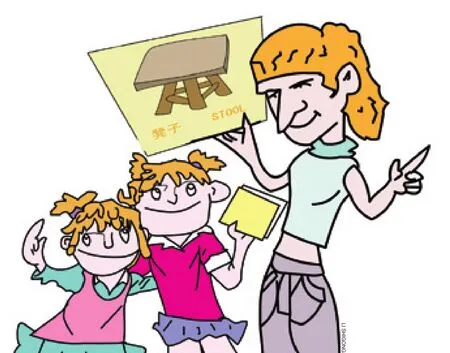Getting Oriented
2012-10-14ByKarmelSchreyer
By Karmel Schreyer
Getting Oriented
By Karmel Schreyer

My Hong Kong-born daughters have had a slow start in learning Chinese. It’s something I deeply regret. But I couldn’t help it, having emigrated from Canada and being of Bessarabian heritage. Over the years, my girls have picked up a smattering of languages: They can sing Happy Birthday in Cantonese; they can count to 20 in French; they know a few Japanese phrases; and they know quite a bit of Tagalog. Now my daughters go to a school that offers Mandarin instruction every day. I am excited for all of us—because I have decided that learning Mandarin is going to be a family matter. I have always felt that the supreme benefit of living abroad is that your offspring will be bilingual.
Where I grew up in Manitoba, western Canada, I was the star pupil of my French lessons which began in grade five. I was so good at picking up la langue française that I became the teacher’s helper. Knowing talent when she saw it, my French teacher soon was calling on me to help students who were having a hard time mastering the language. I remember quite clearly coaching my classmates in French pronunciation. I knew that mnemonics would be useful to help them with the recitations necessary to advance to the next page in the textbook. In this way,C’est une bonne idée(It’s a good idea) became “Such a bonny day.” My methods worked; classmates advanced and I patted myself on the back for a job well done. But when I moved to eastern Canada with my parents, I discovered that my French was not good at all and found myself receiving remedial lessons after school. This was a valuable, character-building experience in the long run—but I didn’t know that at the time.
Because of this formative experience in foreign-language acquisition, I am determined to stand shoulder-to-shoulder with my children as they learn their second language. Full disclosure: I spent one summer studying at a Mandarin conversation course at the Beijing Second Foreign Language Institute when I was a university student, and my three years in Japan means that I can understand quite a fewkanjithough that would still make me functionally mute in Mandarin.
The timing of my newfound determination is auspicious. One Friday recently, my youngest daughter came home with a low mark in a Mandarin dictation. She was demoralized: It was probably the first time she had had a result so dangerously low in any subject. I realized the day had come when I could start applying my language-learning background to my native-English-speaking children’s education. Flashcards for everyone! Posters by the bedside, and even a few next to the TV. A Mandarin dictation APB (all-points bulletin) was sent out. There was going to be a different dictation on Monday and e-mails of encouragement ricocheted to and from all family members.
Over the weekend, we played the game“concentration” on three levels: Chinesepinyin(pronunciation) and English meaning. We played until the Mandarin pronunciation and English meaning became second nature. Then I made a second set of Chinese character cards and we played concentration by matching the identical pairs. Every time we flipped a card we had to say it and pretend to write the character in the air with our index finger. After a while, I would flip the cards for my daughter and she would write the character in the air, no longer allowed to look at the card as a prompt. On the Monday morning, our family helper walked my daughter to the bus stop, to give her what we named the “last-chance-saloon”quiz. By then my daughter was so sure of herself for the upcoming dictation. And she got a perfect score. I even learned a thing or two.
I know at this level, it will be easy for me to stay one page ahead in my children’s textbooks, so to speak—at least for now. But it is my fervent hope that both my daughters will be talking circles around me very soon. I am already dreaming of summer sojourns to Beijing for further study, but for now, I’d better hit the books, and make some more flashcards.
